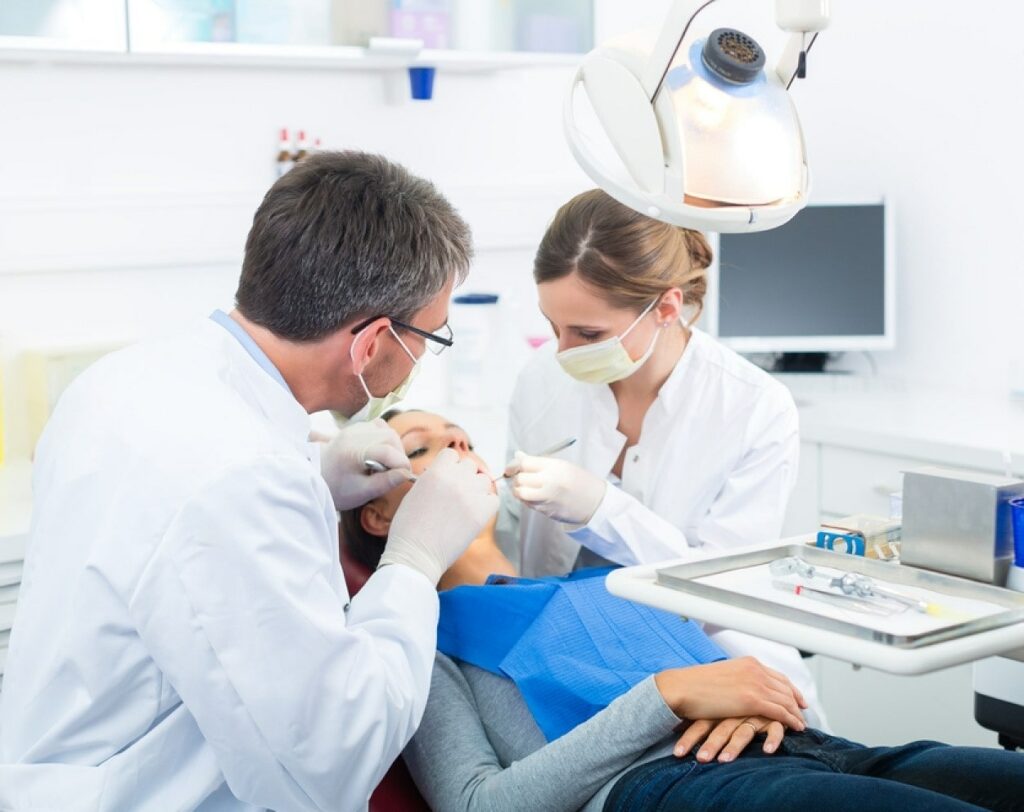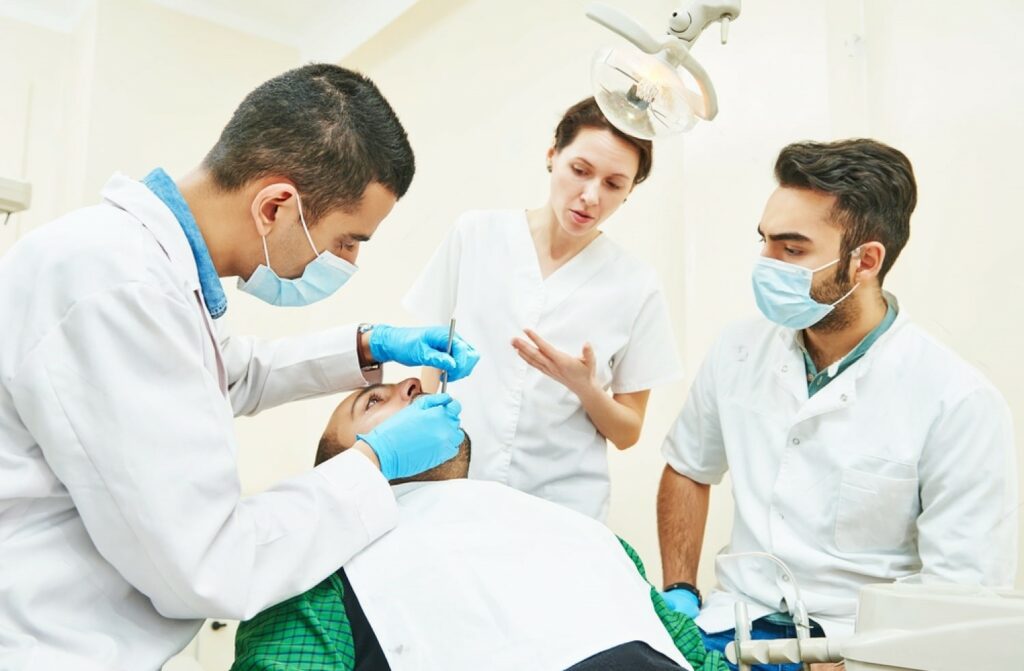Some say that dentistry is a blend of both science and art. Understanding the systemic health conditions of each patient and tailoring custom treatments to preserve and restore their oral function is key. If you have a passion for improving the quality of life for other people but want a better work-life balance than more traditional medical careers may offer, than becoming a dentist could be a wonderful career path.
The Daily Life of a Dentist
Each day as a dentist involves a symphony of skills and responsibilities. Beyond the pristine white coats and dental chairs lies a world of diverse tasks. From conducting comprehensive oral examinations and diagnosing conditions to performing intricate restorative procedures and cosmetic enhancements, dentists care for the oral health needs of a diverse range of patients. The technical mastery used in procedures like root canals, crown placements, and dental implants is the result of years of education, continued professional training, and clinical practice. Our hands are our most important tools, and the precision with which we wield them can make all the difference in our patients’ lives. Dentists are master multitaskers, consistently moving between patients to efficiently care for or examine each individual under their supervision.

A Fusion of Art and Science
Being good with your hands is essential to becoming a dentist. Dentistry is more than just science—it’s a creative art form. The way we reshape smiles, restore damaged teeth, and design prosthetics requires a keen eye for aesthetics and symmetry. We sculpt dental materials to mimic the natural beauty of teeth, creating outcomes that are not just functional but visually pleasing. Dentists are artisans who craft confidence and self-esteem with every procedure. From crafting seamless cosmetic fillings to reconstructing a fractured tooth, our hands mold more than just dental materials; they shape lives.
Building Patient Relationships
At the heart of our profession lies a deep sense of compassion, friendliness, and empathy. As dentists, we have the unique privilege of developing long-lasting relationships with our patients. We witness the vulnerability that often accompanies a dental chair, and we take it upon ourselves to ease other people’s fears, self-consciousness, and anxieties. Our ability to communicate effectively, listen attentively, and provide personalized care fosters trust and establishes a safe space for our patients. We help others overcome challenges, offering both physical relief and emotional support.
Navigating The Business of Dentistry
Behind the scenes of clinical patient care, dentists must also manage the business aspects of their practices. From overseeing appointments and handling finances to managing a team of dental hygienists and assistants, running a dental practice requires a multifaceted skill set. There is a balance between patient care and administrative tasks, ensuring that the operational side of dentistry runs smoothly. Dentists are entrepreneurs who are responsible for meeting overhead costs and making smart, economical decisions to ensure their practice thrives; that means meeting production levels to cover rent, staff salaries, lab fees, and other expenses.

The Weight of Responsibility: Ethical and Moral Considerations
Dentists hold a significant responsibility in their hands—the well-being of their patients. All too often, that means they will need to make decisions that align with ethical and moral principles, putting the patient’s best interests at the forefront. This includes informed consent, respecting patient autonomy, and maintaining patient confidentiality. But it also means identifying potential physical and emotional risks in our patients and acting as a mandated reporter to protect victims of suspected domestic abuse or human trafficking. Or knowing how to delicately help someone struggling with an eating disorder. The choices we make in diagnosis and treatment have a direct impact on people’s lives.
The Pursuit of Knowledge: Lifelong Learning
Oral health knowledge doesn’t end with graduation; it’s a lifelong commitment. Continuing education is the compass that guides us through the ever-evolving landscape of dental health technology and best practices. As licensed healthcare providers, dentists understand that staying stagnant is not an option; to provide the best care, it’s necessary to stay abreast of the latest advancements, techniques, and research. In fact, it’s usually mandatory to maintain your dental licensure.

Continuing education courses offer opportunities to explore emerging technologies, refine our skills, and learn about groundbreaking research that can reshape how we approach patient care. Whether it’s mastering a new diagnostic tool or deepening our understanding of oral-systemic health connections, these learning opportunities provide the tools that keep us at the forefront of patient care and innovation.
Continuing education also enhances our ability to address the diverse needs of our patients. It equips us to offer a wider range of treatment options, ensuring that we can tailor our approach to each individual’s unique circumstances. For instance, maybe you want to learn more about implant placement or administering Botox for cosmetic purposes. As science evolves, so do patient expectations. By investing in ongoing education, we demonstrate our dedication to providing the highest standard of care and fostering trust within our patient communities.
Professional education isn’t just a licensure obligation; it’s a personal and ethical commitment to our patients’ well-being. By staying informed, we empower ourselves and our teams to make informed decisions that can positively impact treatment outcomes.
Is Becoming a Dentist Right for You?
Do you enjoy caring for others? Are you good with your hands and multi-tasking projects? Are you looking for a rewarding career where you can enhance other people’s health while still maintaining a healthy work-life balance of your own? Then becoming a dentist may be the right career choice for you. You can begin your career path by shadowing a dentist (or several dentists) near you to learn more about the day-to-day responsibilities. Undergraduate students should focus on a degree plan in sciences, such as biology or chemistry. Whether you’re still in high school or an adult learner considering a job change, becoming a dentist is an extremely rewarding career that allows you to make a difference in other people’s lives every single day.





















